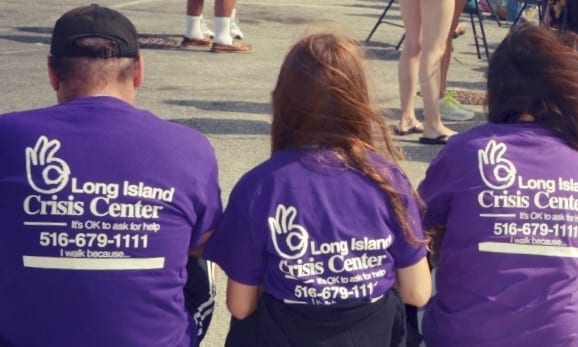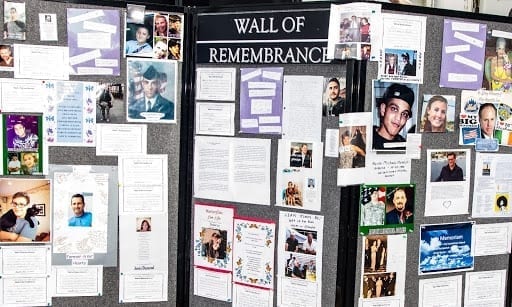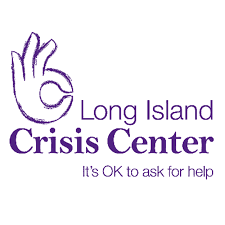An Unexpected Cry For Help
Long Island crisis intervention agency prevents suicide among a surprising group.
U.S. suicide rates have increased by 33% in the last 20 years, according to the Center for Disease Control’s National Center for Health Statistics. In the wake of this intensifying national emergency, the Long Island Crisis Center’s Director, Joe Walsh, and Director of Development, Fran Karliner, detected an alarming statistic in their own community of Nassau County.
According to the Centers for Disease Control and Prevention, suicide is the second leading cause of death for persons aged 10-24, and the rate of attempted suicide is 32% among NYC LGBTQ youth who have been bullied on school grounds in the past 12 months.
“Not only is it scary how suicide has become an upward trend,” said Karliner. “In the past two years, we’ve been getting calls on our hotlines from children as young as age 10. This is something we’ve never seen before.”
Since 1971, Long Island Crisis Center (LICC) has been a 24/7 suicide and crisis intervention agency, that supports Long Islanders at critical times in their lives. Their trained staff of 180 volunteer counselors operates nine separate hotlines around the clock, which include phone numbers and chat services for demographics such as veterans, seniors, and young Latinas. In recent decades, however, the growing number of young people on the verge of suicide while confronting their sexual identities has prompted the LICC to take a more preventative approach to their work.
In addition to their Pride for Youth Division, created to address the disproportionate number of suicide calls received from the LGBTQ community, LICC has expanded its Building Healthy Lives Through Education Program, which sends trained counselors into middle schools and high schools to offer workshops on suicide prevention, LGBTQ issues, anti-bullying, and mental health before children find themselves in crisis.
“All of these issues are tied together, and they all impact a child’s decision to take their own life,“ said Joe Walsh. “Because of social media, bullying is a different world. That’s why we’re seeing such an increase in youth statistics. In the past, if you had a bully at school, you could go home and be safe. Now with cyberbullying, your bullies follow you home. Many kids live in a constant state of fear, and feel like they have no one to turn to for help.”
For the last 40 years, LICC has aggressively addressed sensitive issues like sexuality and mental health in schools, not only to eliminate the stigma these topics can elicit but also to give students an open forum in which to vent their frustrations and feel safe to be themselves in a judgment-free environment.
“We now have workshops on sexual identity and orientation,” said Karliner. “We don’t just talk to the LGBTQ kids. We work with entire classrooms because we need everyone to understand acceptance and create a safe environment together.”
Ms. Karliner shared a story about a 12-year old girl who attended one of their middle school workshops on suicide prevention. The young girl, moved to tears by the end of the session, later accompanied the workshop leader to the guidance counselor’s office where she reached into her backpack and handed over a bottle of pills, saying, “I was going to commit suicide today, but now that I’ve heard you, I no longer want to kill myself.”
Confidentiality: No data, no state funding.
LICC’s preventative workshops have had a major, yet unquantifiable impact on saving the lives of Long Island’s children. On one hand, they hear from kids every day who get to live because they received a chance to be heard by a trained counselor who understands what they’re going through. On the other hand, because LICC protects the identities of every single person they serve, and not every child shares how they’ve been impacted, they cannot collect the numerical data needed to get government grants for this specific prevention program.
“75% of our funding comes from government grants, but that restricted money can only be used to support interventions with people already in crisis. We want to reach people before they get to that point. Bank partnerships like the ones we’ve built through First Central Savings Bank and Impact Deposits Corp. have helped us immensely with that,” said Karliner. “Last year, we raised a budget of $150,000 for our preventative programs, which allowed us to reach 31,000 kids. The quarterly check we receive from Impact Deposits Corp. literally saves lives and it costs less than $5 per child.”
Michael Serao, EVP of First Central Savings Bank in Glen Cove, New York has been a private supporter of LICC for years. “My husband and I have supported many organizations. Long Island Crisis Center is especially honest and dedicated to the LGBTQ community. Although mostly underfunded, they never turn anyone away,” said Serao, “We knew if they banked with us through Impact Deposits’ program, we could get them the funding they need to save more young lives in our community.”
“Partnerships like these instill in us a real sense of hope that people care,” said, LICC Director Joe Walsh, “and instilling hope is the central theme of the work we do. Hope can begin when someone feels heard: at a workshop, in an intervention, or in a conversation with a counselor. It’s a simple idea, and it can — it has, saved so many lives.”
To learn more about Long Island Crisis Center and to donate to their organization, visit: https://longislandcrisiscenter.org/












